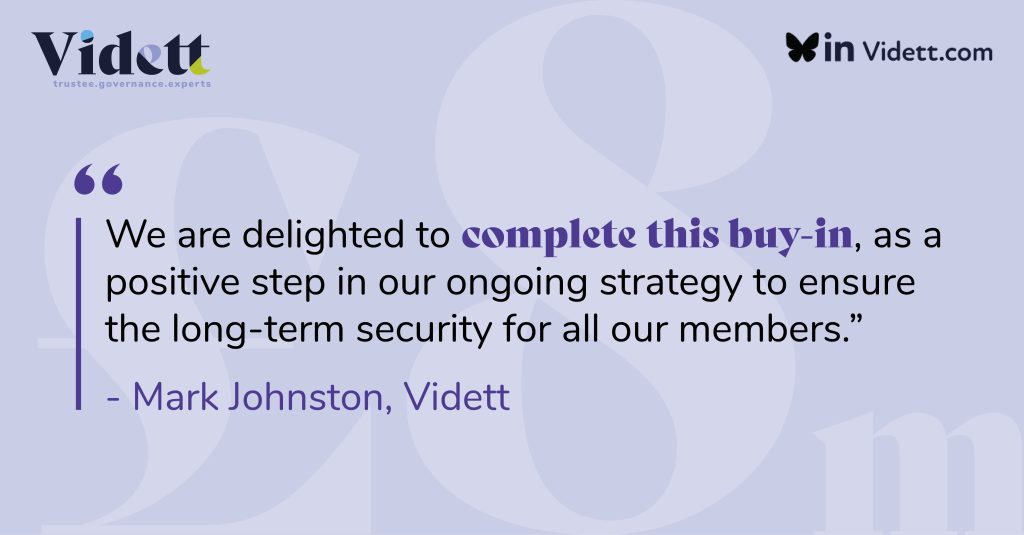Micro schemes in maximum focus
At our Endgame Solutions Conference earlier this summer, one of the most insightful sessions turned the spotlight onto a part of the market often left in the shadows: micro schemes. I was pleased to chair the discussion and was joined by a panel of expert colleagues from across the industry, including Adam Davis (K3/Isio), Alma Goyanes-Payne and Rob Mechem (Just), Chris Hawley (Barnett Waddingham), and Jonathan Hazlett (Osborne Clarke).
With over a third of UK DB schemes holding less than £10 million in assets (and 50% of those we surveyed during the session suggesting that micro schemes can be defined as those with assets under £5 million), micro schemes make up a significant share of the market. Yet they face some of the sharpest pressures, including disproportionate governance costs, complex legal legacies and limited insurer appetite. But while the challenges are clear, the discussion also uncovered practical ways forward.
Scale of the challenge
The scale of micro schemes’ issues cannot be overstated…
21% of DB schemes have less than £5 million in assets, and 14% have under £10 million in assets.
Some of the smallest are managing transactions under £100,000 and I was part of the Vidett team on a £500,000 transaction. Every inefficiency, from fragmented data to lengthy advisory processes, hits harder at this end of the spectrum.
As one of my fellow panellists put it, “Micro schemes are expected to meet the same governance standards as much larger schemes – but without the same resources.” That imbalance is becoming harder to ignore.
The professional trustee advantage
Here, professional trustees, particularly sole trustees, can add real value. By simplifying decision-making and offering continuity, professional trustees can streamline governance, keep costs down and bring clarity to a complex space.
The sole trustee model helps reduce adviser fees and ensure transactions stay on track, which is especially important when margins are so tight. Sole trusteeship is fast becoming a pragmatic solution for schemes struggling with scale.
Practical strategies that work
We heard excellent ideas from the panel on strategies that micro schemes can implement to improve outcomes, which included:
Data readiness
Clean, accurate data is fundamental. It reduces transaction friction and makes schemes more attractive to insurers.
Standard templates
Using consistent legal and benefit documentation cuts down on time and legal costs and avoids reinventing the wheel.
Sole trusteeship
Experienced sole trustees can drive efficiency, improve decision-making, and offer stronger regulatory assurance.
Consortium approaches
Small schemes joining forces, whether through shared governance or administration, can benefit from scale and greater market leverage.
There is a compelling case for tackling any legacy complexity early, with panellists noting that “tidying up old documentation can save months down the line.”
The insurer perspective
It’s no secret that micro schemes can be commercially unappealing to insurers. But good preparation can make all the difference here. Schemes that present accurate data, standardised processes and clear governance will always have a better chance of securing insurer engagement.
As one expert noted:
“Size is only one factor – the quality of preparation is what really matters.”
Consolidation: not a silver bullet
There was also thoughtful discussion around consolidation, including whether a public consolidator could serve as a lifeline for smaller, underfunded schemes. While there’s merit to the idea, the panel agreed it’s no silver bullet. Outcomes depend heavily on scheme readiness, funding levels, and trustee oversight.
As I said during the session, “Consolidation can unlock value – but it must be pursued for the right reasons and under the right conditions.”
My final takeaway
Micro schemes may operate under the radar, but they represent a critical, and significant, part of the DB landscape. With strong governance, better data, and the right professional support, they can still deliver excellent outcomes for members – even in a tough commercial environment.
The key lies in smart preparation, collaboration, and prompt action. Or, to echo a standout comment from the panel: “Size is a hurdle – but not an excuse.”
For further information, please contact James Duggan from our Endgame Solutions team.




